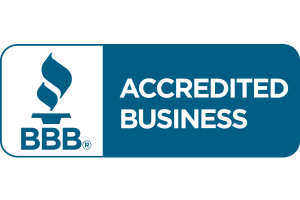The Foreclosure Process in Florida
In the State of Florida, the foreclosure process is just like it would be for any other lawsuit. Florida is a judicial process state. This means that the Bank is required to file a lawsuit. The process begins with the filing of a Lis Pendens and the filing of the Complaint of Foreclosure. The process does not begin against you until you are actually served with the Initial Summons and Complaint. Once being served, you have 20 calendar days to file an initial “response” with the court and to the bank’s attorney. This “response” can take the form of an Answer, Motion to Dismiss, or other motion. From that point forward, you are entitled to begin the “Discovery phase” of the litigation. The “Discovery” phase consists of requests for information in the form of documents, questions, Requests for Admissions, and depositions. Your litigation strategy can vary depending on your individual circumstances, the facts surrounding your case and your attorney. Depending on your attorney’s strategy, defenses, and whether or not there are any counterclaims, the foreclosure process can take one to two years on average; three years is not unusual. In some cases, the foreclosure case can continue for as long as four or five years. Over the past 12 months, many jurisdictions have taken steps to clear out all the old cases and make a concerted effort to speed up the process. There a 5 potential outcomes of the foreclosure case; Dismissal (with or without Prejudice), Loan Modification, Loan Reinstatement, Property Sale (Traditional or Short Sale) or Final Judgment of foreclosure. An order of Dismissal may result if the bank has an issue with their case during the foreclosure process in which there is a problem with their case. Many problems can be resolved and the bank can re-file the foreclosure case and start the process over again unless the case is dismissed “with prejudice.” This is unusual and the judge only uses this terminology in extreme circumstances in which the bank acted in a reckless manner or committed fraud upon the court.
The lender may not place a lien against any other personal or real estate assets, unless they first get a judgment of foreclosure. A Final Judgment of Foreclosure entitles the bank to a foreclosure sale. The Foreclosure Sale is usually scheduled between 30-120 days after the entry of the Final Judgment. After the Final Judgment is entered, the Borrower/ Defendant has 10 days to file a Motion for Rehearing. The Borrower/ Defendant has 30 days to file a Notice of Appeal after the Final judgment has been entered or after a Rehearing is denied (if applicable). After the foreclosure sale, the Defendant / Borrower has 10 days to file an Objection to Sale. If there is no Objection filed, the Certificate of Title shall use shortly thereafter. If an Objection is filed, then the Certificate of title will not issue until the Objection to Sale is disposed of. Once the Certificate of Title is issued, the foreclosure process ends unless the bank attempts to obtain a deficiency judgment. Historically, banks have not pursued deficiency judgments since they take much more time and expense and they have assumed that the borrowers/ defendants have already lost their only asset of significance. In the past, Banks have only selectively pursued deficiency judgments against individuals or corporations perceived as “collectible” or defendants with several investment properties and other collectible assets. However, recently the risk of being pursued for a deficiency judgment has increased due to the abundance of investors willing to purchase the collection rights for pennies on the dollar and hope to collect $0.20-$0.30 of the dollar against the Borrower. If the bank is successful obtaining a deficiency judgment, this monetary judgment automatically becomes a lien on all other real estate properties with the same legal name as the judgment debtor. However, there are many steps you can take to protect these assets. The state of Florida is a “Debtor’s Haven” and there are many steps you can take to protect your assets. Contact the experienced attorneys at the Neustein Law Group, PA. Their attorneys and staff have decades of experience in Florida commercial litigation. They have several convenient offices throughout the state of Florida. They are 20 minutes from wherever you are.






